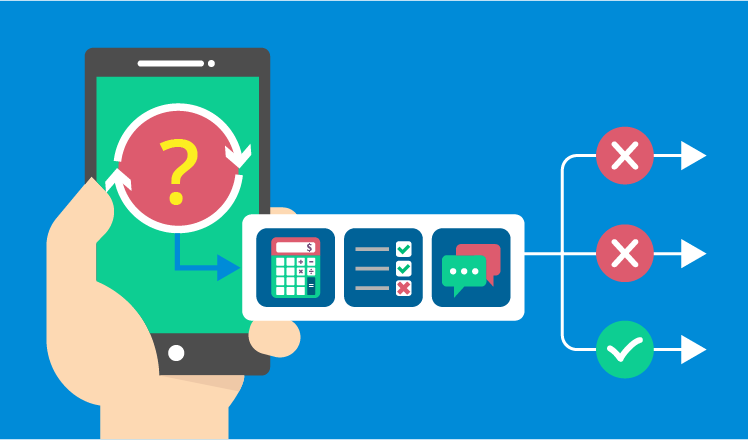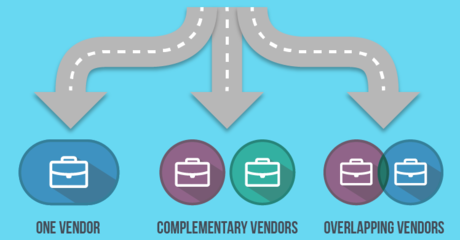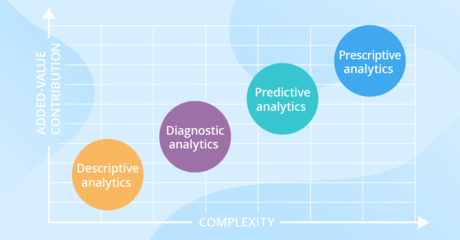It’s true that technologies and machines made it easier to work safely and successfully complete tasks. Yet, people are still responsible for making important decisions on their own. A surgeon can perform the most intricate operation with the help of powerful tech tools, but technological capabilities don’t really matter if the initial diagnosis was incorrect. In this case, the wrong decision may cost as much as a patient’s life.
Judgement of those who are to estimate and consult may ‘drift’ – that is, deviate from precise calculations or correct decisions. Such drift can have grave consequences for businesses: over the years, companies insensibly lose billions due to inaccurate decisions of their specialists, as confirmed by Daniel Kahneman’s research group. According to his study, even if the difference between two employees’ case assessments of $1,000 and $600 respectively is only in $400, the same 40% judgment variation will be present in decisions involving much larger costs.
Understanding the nature and reasons of judgment drift can help to come up with a tool that will control it and minimize its effect to the largest extent possible.

What causes drift in decision-making
All professional decision-making tasks need expert-level knowledge. However, some decisions have very strict and precise regulations, while others leave space for personal judgment. The latter open a possibility for noise – influences of personal circumstances (mood or the physical state), stereotypes, or personal beliefs and principles that at times aren’t even acknowledged.
For instance, although the aim of both a loan provider and a recruiter is to assess a person they deal with, they are in quite different situations. The loan provider analyzes the financial capability of a future customer (with 80% of their decision based on figures and formulas), while the recruiter uses information from CVs, tests and interviews (their decision is about 60% based on personal impression). As a result, the recruiter’s less regulated choice is more likely to be inaccurate.
Forecasting disease progression, predicting purchase rates and estimating the cost of possessions or damage – all these judgments are prone to noise and bias. The more they can be guided and regulated, the more accurate a decision will be.
Algorithms help to control noise and bias
According to the studies highlighted in HBR’s article of October 2016, algorithms are especially effective on the final stages of decision-making. As mentioned in the paper, after US judges started using a consulting algorithm that helped them determine whether a defendant was safe to be released until trial, the crime among defendants decreased by 15%. Meanwhile, the amount of people released before trial skyrocketed, which vacated detention centers.
Contrary to the common misconception, algorithms don’t have to use complex databases nor do they completely replace people at work. Most algorithms can simply ask people to input data after analyzing the situation and narrowing it down to a number of facts. This way, the final result is based on the professional knowledge but is deprived of bias.
Algorithms can be shaped as a desktop or mobile app, and the latter is, by all means, a more flexible and convenient solution. With the help of an IT consultant, companies can also understand whether they will benefit more from standalone mobile app development or from implementing decision-making algorithms as a part of a complex enterprise mobile solution.
Why and how a mobile app can help
Judgment is not tied down to a desktop-equipped workplace. Some decisions involve collecting information in the field (recruiters on interviews, estimators on-site), some require an instant answer to a customer’s question (shop consultants and salespeople in the field). Enabling a decision-making tool for mobile isn’t just a matter of convenience but rather of common sense and expediency.
-
Checklists
Electronic checklists can be useful for estimators of antiques, real estate, car damage or literally anything else. An app will display lists of descriptive characteristics and specifics, different and customizable for any object. By paying attention to all the necessary details mentioned in the app, an expert will later base their decision on as much information about the object of interest as possible.
-
Calculators
Once the necessary data is collected, it can be put in the app’s calculator. The method of input varies on the initial data type: a consulting expert can, for instance, enter exact parameters and get a final price, while a healthcare expert will see scales where they should rate their patient’s condition to get a type and length of treatment.
-
Eligibility test
A mobile app can offer a basic eligibility test to learn if a customer or a candidate matches a company’s offering. By answering simple ’yes/no’ or scale-based questions on their mobile devices, recruiters will quickly find out if they should proceed to other interview stages with a certain candidate, and an insurance company will know if they should accept the application. Eligibility tests can also include special conditions to show, for example, which special offers fit a particular customer.
-
Opinion surveys
Some decisions aren’t made by one person but are discussed collectively. However, it is often the case that the final decision is the one that is proposed first or announced in the most confident tone, while other good ideas stay in the background.
To make sure all committee members have their say, a company can introduce a feature that will ask to contribute ideas prior to roundtable meetings. On the meeting itself, all the opinions offered will be open for discussion.
Endnote
Since circumstances and stereotypes constantly influence people, judgment drift is frequent in business decision-making. Yet, technology consulting and mobile app development can pave the way to effectively minimizing it. Checklists, calculators, eligibility tests and opinion surveys in a mobile app can ensure that decision-making of field or office-based experts is accurate and doesn’t get impeded by noise and bias.

Looking for experienced mobile app developers who can create your app from scratch or get into gear on an existing project? You've just found them.


